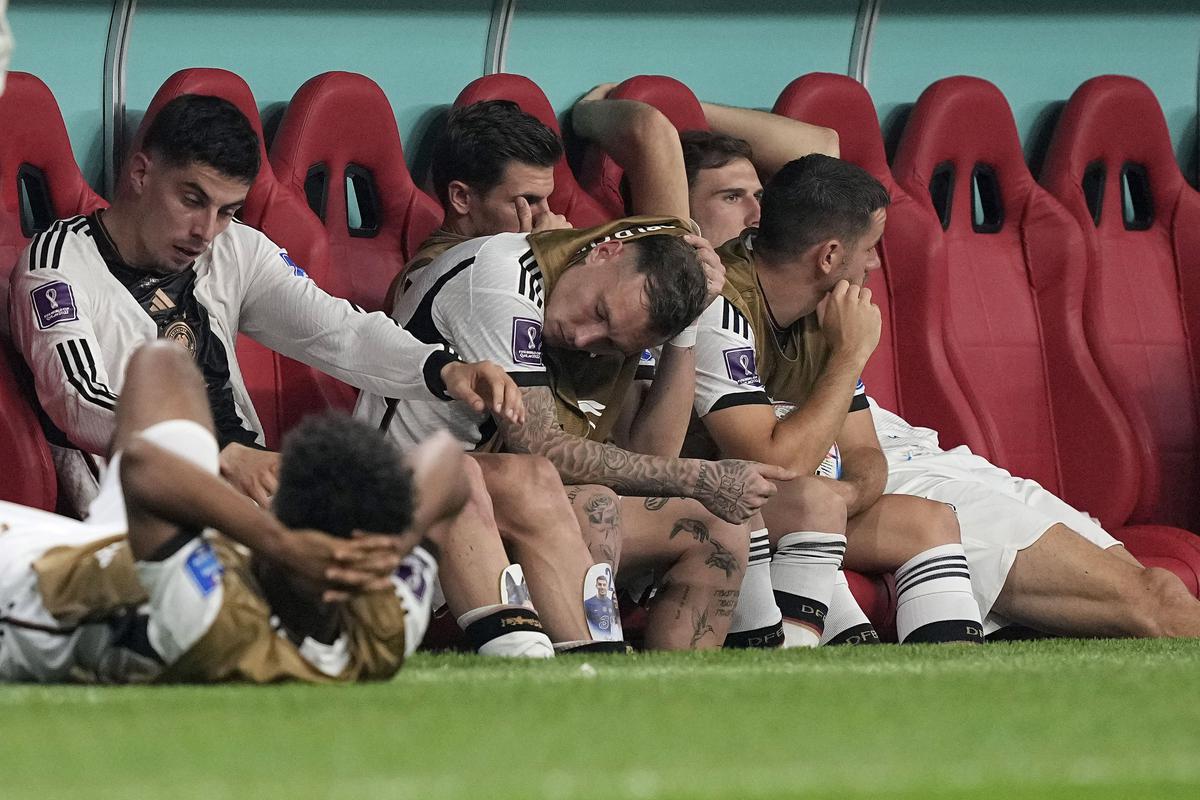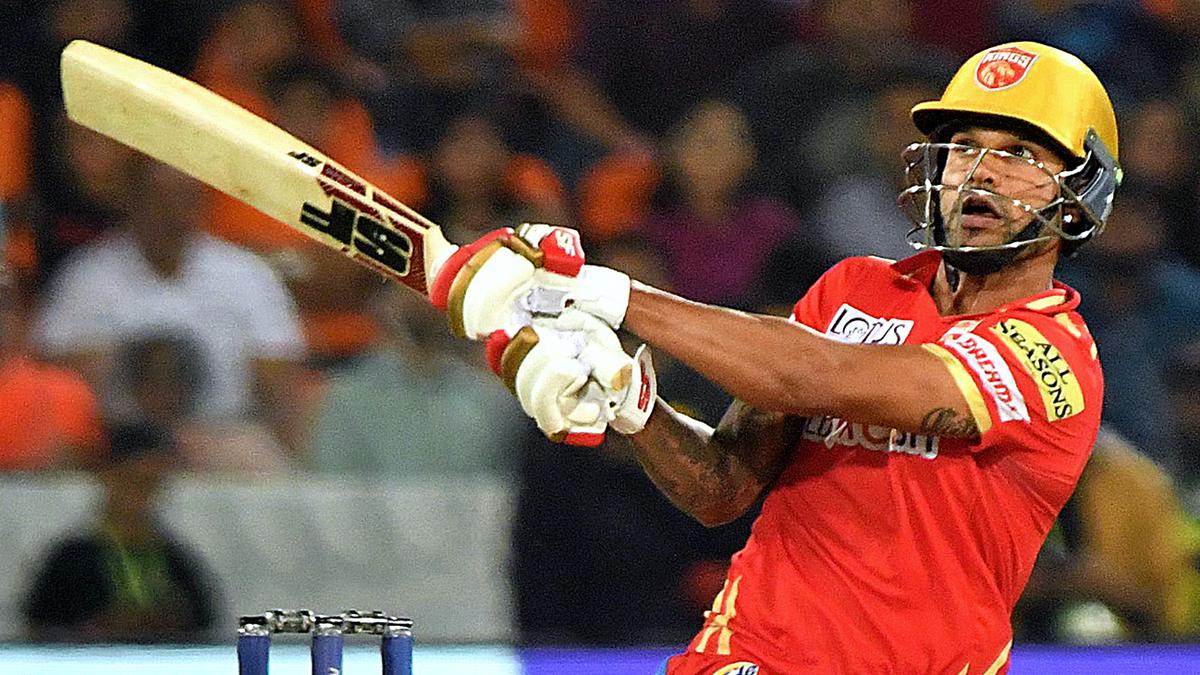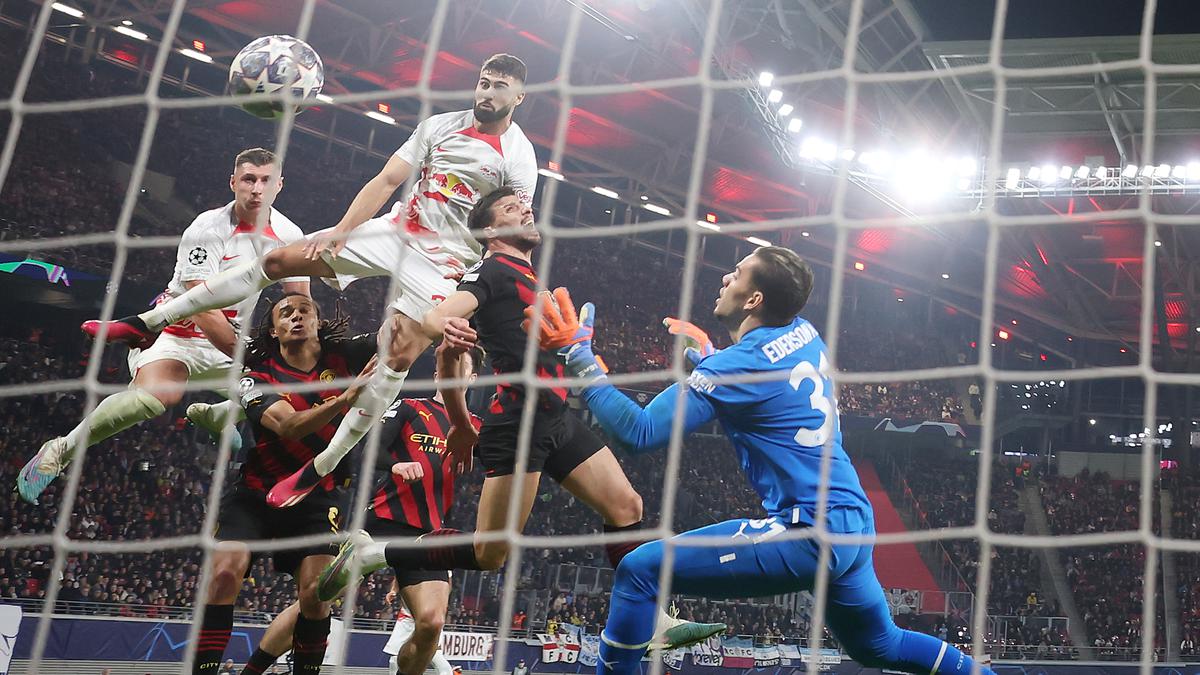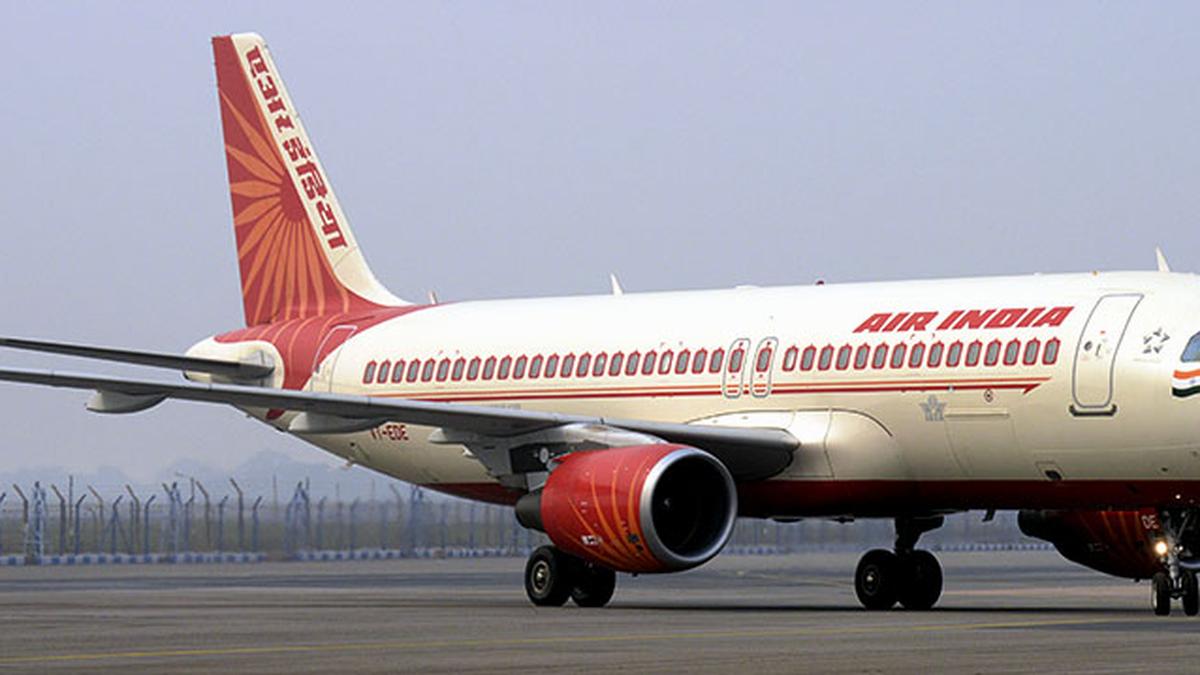German subs on the bench react after the World Cup group E match between Costa Rica and Germany at the Al Bayt Stadium in Al Khor, Qatar
| Photo Credit: AP
German football plummeted deeper into crisis on Thursday after the national team tumbled out of the World Cup in Qatar despite a 4-2 victory over Costa Rica in their final Group E match.
The 1-1 draw with Spain following their shock 2-1 opening defeat to Japan had given Hansi Flick’s men some hope of advancing but even victory against Costa Rica was not enough to prevent yet another tournament debacle, with the Germans condemned to their second straight World Cup first round exit.
The Germans had been one of the most dominant forces of the sport for almost 70 years, having won four World Cup titles since 1954, trailing only Brazil’s haul of five.
But Flick’s team was overwhelmed, badly prepared and below standard at the tournament, failing to show any of the characteristics that had turned them into a world beating force for so many decades.
Winners in 1954, 1974, 1990 and 2014, Germany had also finished as runners-up four times while reaching the semi-finals another five times.
But those successes are now a distant memory, clouded by the desert sand in Qatar, with Germany a shadow of their former powerful self.
Gone are their never-give-up qualities, their determination and conviction that any game, no matter what the score, could be turned.
Instead it was the Japanese who took a page out of their book and came from a goal down in their opening match of the tournament to score twice late on and snatch victory.
Four days later the Spaniards should have done better than a 1-1 draw against them having dominated for much of the game.
Disjointed squad
Flick’s team was patchwork of ageing and inexperienced players with their choice of centre forwards being that of either 29-year-old Niclas Fuellkrug, who earned his first cap days before the World Cup, and Youssoufa Moukoko, the youngest player in the tournament.
A leaking defence had been an issue for months and Flick did not play the same backline twice in all the matches he has been in charge coming into the World Cup.
The absence of a natural leader on the pitch in the mould of past greats Franz Beckenbauer, Lothar Matthaeus or Bastian Schweinsteiger — the one player who would take responsibility at tough times to guide the team — was glaringly absent.
Team captain Manuel Neuer cannot do it from his goal while midfielders Ilkay Guendogan and Joshua Kimmich consistently shied away from this role.
Thomas Mueller, who was dropped from the national team a few years ago only to be brought back, is far from the player who lifted the trophy in 2014 and hinted at an international retirement after their last group game.
Facing the music
The Germans started off their stay in Qatar by being drawn into a row with FIFA when the governing body threatened them with unspecified sanctions if they wore armbands to promote diversity in the host country. While they overcame that hurdle by making a stand by covering their mouths in a team photograph ahead of their first match, the saga perhaps took away their focus from their on pitch commitments.
They will now return home to face the music.
Deep reforms will now be required on both team and federation level if the country’s national sport is to survive this crisis that has destroyed Germany’s reputation across the world.






